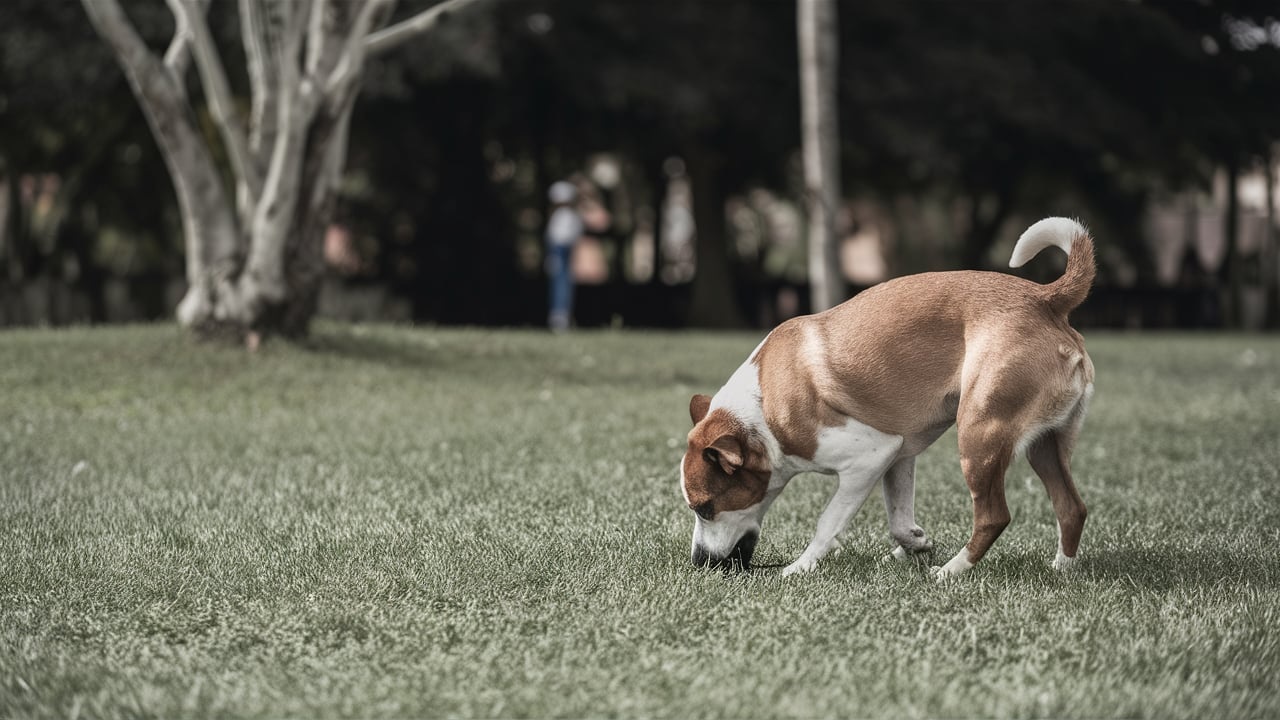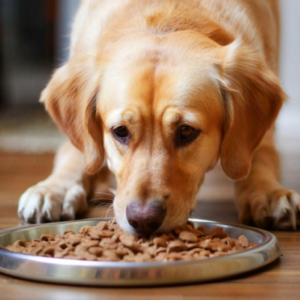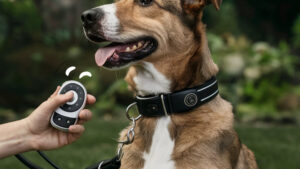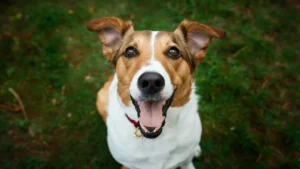Properly dispose of dog poop by using a dog poop septic system, an essential tool for pet owners. This system helps in the safe and efficient disposal of dog waste, ensuring a clean and hygienic environment for you and your pet.
It is important to follow proper waste disposal methods to prevent any negative impact on the environment and public health. There are various options available, such as using biodegradable poop bags or flushing the waste down the toilet. By taking responsible actions, you can effectively manage dog poop and contribute to a cleaner and healthier community.
The Problem With Dog Poop
As much as we adore our furry friends, the issue of dog poop is a significant concern that cannot be overlooked. The improper disposal of dog waste can lead to environmental pollution and pose health risks to humans and other animals.
Environmental Impact
When dog poop is left on the ground, it can contaminate the soil and water with harmful bacteria and parasites. Rainwater can wash the waste into storm drains, rivers, and lakes, contributing to water pollution. The high nutrient content in dog feces can also lead to excessive algae growth, depleting oxygen levels and harming aquatic life.
Health Risks
Exposure to dog poop can result in the transmission of various diseases such as parvovirus, giardia, and salmonella. When dog waste is not properly disposed of, it can create a breeding ground for disease-carrying pests like flies and rodents, increasing the risk of spreading infections to humans and other animals.
Biodegradable Poop Bags
When it comes to dealing with dog poop, one eco-friendly solution that has gained popularity is the use of biodegradable poop bags. These bags are specifically designed to be environmentally friendly and provide a more sustainable way to handle pet waste. Let’s explore the materials and composition of these bags, as well as the composting challenges they may present.
Materials And Composition
Biodegradable poop bags are typically made from plant-based materials, such as corn or potato starch. These materials are renewable resources that can be sustainably harvested, making them a greener alternative to traditional plastic bags. The bags are designed to break down naturally over time, reducing their impact on the environment.
These bags are not only made from biodegradable materials but are also free from harmful chemicals and additives. This ensures that they are safe for both the environment and your furry friends.
Composting Challenges
While biodegradable poop bags are a more sustainable option, there are some challenges when it comes to composting them. The bags need specific conditions to break down properly, and not all composting facilities are equipped to handle them.
It’s important to note that not all biodegradable poop bags are certified for composting. Look for bags that meet recognized standards, such as the ASTM D6400 or EN 13432 certifications. These certifications indicate that the bags can be composted in industrial composting facilities.
However, if you have a home composting system, it’s generally not recommended to add biodegradable poop bags to it. The high temperatures and conditions required for proper decomposition may not be consistently achieved in a home compost setup. It’s best to check with your local composting facility or waste management provider for guidance on how to dispose of these bags properly.
In conclusion, biodegradable poop bags offer a more sustainable option for handling dog waste. They are made from plant-based materials and designed to break down naturally over time. However, composting these bags can pose challenges, and it’s important to ensure they are certified for composting in industrial facilities. Proper disposal is crucial to minimize their environmental impact.
Pet Waste Digesters
Dog poop can be a hassle to deal with, but a pet waste digester offers an eco-friendly solution for managing it. With the help of a digester, you can efficiently dispose of your pet’s waste while minimizing the environmental impact. Here’s what you need to know about setting up a backyard digester and some essential maintenance tips to keep it functioning effectively.
Setting Up A Backyard Digester
When setting up a backyard digester, consider the following steps:
- Choose an appropriate location for the digester in your backyard.
- Excavate a hole that meets the recommended size for the digester.
- Install the digester according to the manufacturer’s instructions.
- Add the necessary materials, such as rocks and septic activator, to aid in the decomposition process.
- Ensure proper lid installation for odor control and safety.
Maintenance Tips
Effective maintenance of your pet waste digester is crucial for its longevity and optimal performance. Here are some maintenance tips to keep in mind:
- Regularly check the digester for any signs of damage or malfunction.
- Keep the lid securely closed to prevent odors and discourage pests.
- Periodically add septic activator to aid in the breakdown of waste.
- Remove any excess waste that may accumulate around the digester.
- Follow the manufacturer’s guidelines for maintenance and troubleshooting.
Composting Dog Waste
Composting dog waste is not only an eco-friendly solution but also a great way to repurpose your furry friend’s waste. By composting dog waste, you can reduce the amount of waste that ends up in landfills and create nutrient-rich soil for your garden. However, it is important to follow safe composting practices to ensure that the process is effective and hygienic.
Safe Composting Practices
When it comes to composting dog waste, there are certain do’s and don’ts that you should keep in mind. By following these practices, you can ensure that the composting process is safe and successful.
Do’s
- Choose the right composting method: There are various methods for composting dog waste, such as using a dedicated compost bin or a pet waste digester. Choose a method that suits your needs and available space.
- Separate dog waste from other compost: It is important to keep dog waste separate from other compost materials, such as kitchen scraps or yard waste. This helps prevent the spread of any potential pathogens.
- Use biodegradable bags: When collecting dog waste, use biodegradable bags made from plant-based materials. These bags can be composted along with the waste.
- Add carbon-rich materials: To balance the nitrogen-rich dog waste, add carbon-rich materials such as dried leaves or wood shavings to the compost. This helps create a favorable environment for decomposition.
- Monitor the temperature: Composting requires the right temperature for the breakdown of organic matter. Keep an eye on the temperature of the compost pile to ensure it stays within the optimal range.
Don’ts
- Don’t use dog waste compost on edible plants: Due to the potential presence of harmful bacteria, it is best to avoid using dog waste compost on plants that you will consume.
- Don’t compost dog waste in small gardens: If you have a small garden, composting dog waste may not be suitable due to space limitations and potential odor issues.
- Don’t compost dog waste from sick dogs: If your dog is sick or has been treated with medication, it is best to avoid composting their waste. The composting process may not effectively break down any pathogens or chemicals.
- Don’t compost dog waste near water sources: To prevent contamination, avoid composting dog waste near ponds, rivers, or other water sources.
By following these safe composting practices, you can effectively repurpose dog waste and contribute to a more sustainable environment. Remember to always prioritize safety and hygiene when dealing with pet waste.
Flushing Dog Poop: Yes Or No?
When it comes to dog poop, flushing it is not recommended. It can clog the pipes and harm the environment. The best way to dispose of dog poop is to use biodegradable bags and toss it in the trash.
When it comes to disposing of dog poop, there are various options pet owners can consider. One of the most debated options is whether or not to flush dog poop down the toilet. While it may seem like a convenient solution, there are pros and cons to consider before deciding whether flushing dog poop is the best option.
Pros And Cons
Pros:
- Flushing dog poop down the toilet is convenient and eliminates the need for bags or other disposal methods.
- The waste is treated at wastewater treatment plants, which can effectively remove harmful bacteria and parasites.
Cons:
- Flushing dog poop can overload the septic system or sewage treatment plant, leading to problems and potential environmental damage.
- If the dog has been on medication, the waste can contain harmful chemicals that can harm aquatic life if not properly treated.
How To Flush Properly
If you decide to flush dog poop down the toilet, it’s important to do it properly to minimize any potential harm. Here are some tips to follow:
- Use a scoop or bag to pick up the poop and remove any excess debris.
- Flush only the waste and avoid flushing any bags, scoops, or other materials.
- Flush the waste immediately after picking it up to avoid any potential contamination.
- Consider using a septic-safe dog poop bag to help break down the waste and minimize any potential harm.
In conclusion, while flushing dog poop down the toilet may seem like a convenient solution, there are both pros and cons to consider. If you do decide to flush, be sure to follow the proper guidelines and take precautions to minimize any potential harm to the environment.
Innovative Products For Dog Waste
Innovative products for dog waste disposal have become increasingly popular. From dog waste digesters to septic systems, there are many options available for pet owners to safely and effectively dispose of their dog’s poop. Biodegradable poop bags are also a popular choice for those looking for an environmentally-friendly option.
Innovative Products for Dog Waste
As a responsible pet owner, it’s essential to know how to dispose of your dog’s waste properly. Fortunately, there are now innovative products available in the market that can make the process easier, more convenient, and eco-friendly. In this blog post, we will discuss two innovative products that pet owners can consider: flushable dog poop bags and dog waste conversion systems.
H3: Flushable Dog Poop Bags
Flushable dog poop bags are an excellent option for pet owners who want to minimize their environmental impact. These bags are made from plant-based materials and can be easily flushed down the toilet after use. They are also biodegradable, which means they break down quickly and don’t contribute to landfill waste.
Using flushable dog poop bags is easy and convenient. Simply scoop up your dog’s waste using the bag, tie it off, and flush it down the toilet. However, it’s essential to note that not all flushable bags are created equal. Look for bags that are certified flushable and safe for septic systems to avoid any plumbing issues.
H3: Dog Waste Conversion Systems
Dog waste conversion systems are another innovative product that pet owners can consider. These systems use natural processes to break down dog waste, turning it into compost that can be used in your garden. They are an eco-friendly option that reduces waste and provides a useful fertilizer for plants.
There are different types of dog waste conversion systems available, such as pet waste digesters and composting systems. Pet waste digesters are buried in your yard, and they use enzymes to break down the waste. Composting systems, on the other hand, use a combination of heat, moisture, and microorganisms to turn the waste into compost.
It’s essential to follow the manufacturer’s instructions when using dog waste conversion systems to ensure they work effectively. Additionally, it’s crucial to use biodegradable bags when collecting the waste to avoid any contamination.
Conclusion
Innovative products for dog waste, such as flushable dog poop bags and dog waste conversion systems, can make disposing of your pet’s waste easier, more convenient, and eco-friendly. Whether you choose to use flushable bags or a conversion system, it’s essential to be responsible and dispose of the waste properly. By doing so, you’re not only keeping your yard clean but also contributing to a more sustainable environment.
Diy Dog Waste Solutions
When it comes to dealing with dog waste, there are several DIY solutions that can help you properly dispose of it. These solutions not only help keep your surroundings clean and hygienic but also contribute to reducing the ecological impact of dog poop. In this article, we will explore two popular DIY dog waste solutions: Homemade Dog Waste Compost and DIY Septic Systems.
Homemade Dog Waste Compost
Homemade dog waste compost is a great way to turn your pet’s waste into nutrient-rich compost for your garden. Composting dog poop helps break down the waste, eliminates odor, and prevents the spread of harmful bacteria. Here’s how you can create your own homemade dog waste compost:
- Choose a suitable location in your yard for the compost bin.
- Create a compost bin using a sturdy container or build a wooden structure.
- Add a layer of organic material like leaves or straw at the bottom of the bin.
- Collect the dog waste in biodegradable bags and place them in the compost bin.
- Add a layer of carbon-rich materials such as sawdust or shredded paper on top of the waste.
- Turn the compost regularly to ensure proper decomposition.
- After several months, the dog waste will transform into nutrient-rich compost that can be used in your garden.
Diy Septic Systems
DIY septic systems provide an efficient and environmentally friendly way to manage dog waste. These systems work by breaking down the waste and allowing it to decompose naturally. Here’s how you can create your own DIY septic system:
- Choose a suitable location in your yard for the septic system.
- Dig a hole deep enough to accommodate the dog waste and allow for proper decomposition.
- Place a perforated container, such as a plastic drum or bucket, in the hole.
- Add a layer of rocks or gravel at the bottom of the container for drainage.
- Place the dog waste in the container and cover it with a layer of soil.
- Regularly add septic activator or natural enzymes to help break down the waste.
- Monitor the system and ensure it remains properly covered to prevent any odor.
- Over time, the dog waste will decompose and become absorbed into the soil.
By implementing these DIY dog waste solutions, you can effectively manage and dispose of dog poop in an eco-friendly manner. Remember to always follow local regulations and guidelines when dealing with pet waste to ensure the health and safety of your surroundings.
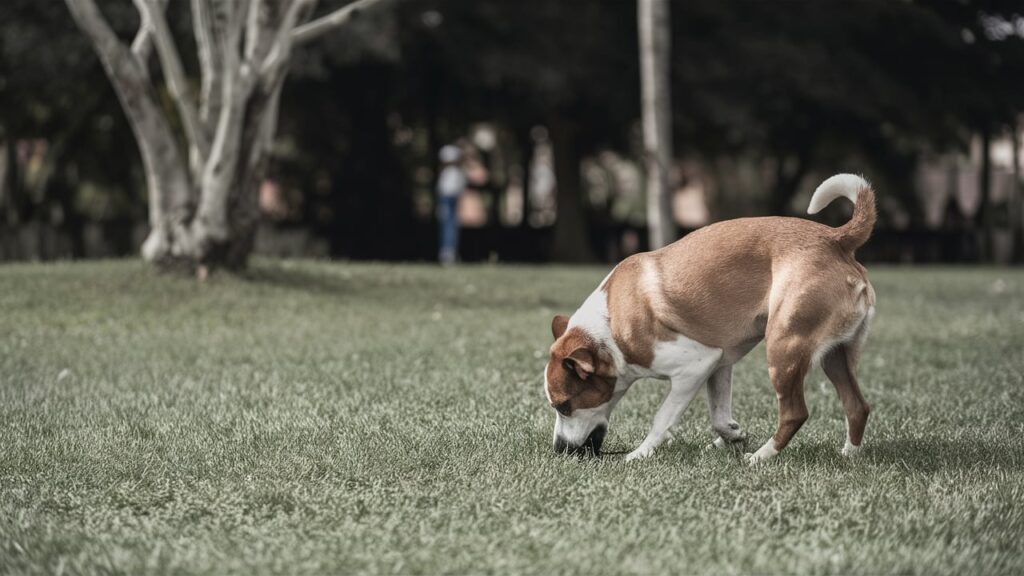
Community Initiatives
Community initiatives play a vital role in maintaining a clean and hygienic environment for everyone. When it comes to managing dog poop, various initiatives at the neighborhood level can significantly contribute to keeping public spaces free from pet waste. Let’s take a look at some of these community-driven efforts.
Neighborhood Dog Waste Stations
Neighborhood dog waste stations are strategically placed receptacles equipped with waste bags and disposal bins. These stations serve as convenient spots for dog owners to responsibly dispose of their pets’ waste while out for a walk. By encouraging the use of these stations, communities can effectively reduce the amount of dog poop left unattended in public areas, promoting a cleaner and safer environment for all.
Educational Campaigns
Educational campaigns aim to raise awareness among pet owners about the importance of proper dog waste disposal. These initiatives provide valuable information on the environmental and health risks associated with leaving dog poop unattended. By educating the community about the impact of pet waste on public spaces and water bodies, these campaigns encourage responsible pet ownership and promote the use of designated disposal methods.
Legal And Ethical Considerations
When it comes to dealing with dog poop, there are important legal and ethical considerations that every responsible dog owner should be aware of. It is not just a matter of cleanliness and convenience, but also a matter of respecting the environment and the well-being of others. In this section, we will explore two key aspects: local regulations and responsible dog ownership.
Local Regulations
Before deciding on the best way to handle dog poop, it’s crucial to familiarize yourself with the local regulations in your area. Different cities and municipalities may have specific rules and guidelines regarding the disposal of pet waste. These regulations are in place to ensure public health and safety, as well as to maintain cleanliness in shared spaces.
Some common regulations include:
- Mandatory use of dog waste bags or scoopers in public areas
- Prohibition of leaving dog waste on sidewalks, parks, or other public spaces
- Requirements for proper disposal methods, such as designated dog waste bins
It is essential to follow these regulations to avoid penalties and contribute to a clean and hygienic environment for everyone.
Responsible Dog Ownership
Responsible dog ownership goes beyond simply picking up after your pet. It involves taking proactive steps to minimize the impact of dog waste on the environment and the community. Here are some key aspects of responsible dog ownership:
- Regularly cleaning up after your dog, whether at home or in public areas
- Using biodegradable poop bags or compostable options to reduce environmental harm
- Properly disposing of dog waste in designated bins or waste management systems
- Avoiding flushing dog waste down the toilet, as it can contaminate water sources
- Being mindful of where your dog relieves itself, especially near water bodies or sensitive areas
By adhering to these responsible practices, you not only maintain a clean and healthy environment but also demonstrate respect for other community members, including fellow pet owners and non-pet owners.
Remember, it is our collective responsibility to ensure that dog waste is managed in a way that is both legally compliant and ethically responsible. By following local regulations and embracing responsible dog ownership practices, we can all contribute to a cleaner and more harmonious community.
Next Steps Towards Sustainability
Looking for eco-friendly ways to deal with dog poop? Consider using a dog poop septic system or a pet waste digester in your backyard. These systems help safely dispose of dog waste and minimize its impact on the environment. You can also opt for biodegradable poop bags made from plant-based materials for a more sustainable solution.
Advancements In Waste Processing
As we strive towards sustainability, advancements in waste processing offer promising solutions for managing dog poop. One such innovative method is the use of pet waste digesters, which provide an eco-friendly way to break down dog waste and convert it into beneficial byproducts.
These digesters utilize natural processes to decompose the waste, minimizing environmental impact and promoting a greener approach to waste management. By harnessing the power of microorganisms, these systems transform dog poop into nutrient-rich compost that can be safely returned to the earth.
Encouraging Responsible Practices
Encouraging responsible practices among pet owners is crucial for minimizing the environmental impact of dog poop. Educating individuals about the importance of proper waste disposal and offering practical solutions can significantly contribute to a cleaner and more sustainable environment.
By promoting the use of biodegradable poop bags and providing guidance on composting dog waste, communities can work together to reduce the accumulation of pet waste in landfills and prevent contamination of water sources.
Frequently Asked Questions
How Should You Dispose Of Dog Poo At Home?
To dispose of dog poo at home, follow these guidelines: 1. Use biodegradable poop bags to reduce ecological impact. 2. Scoop the poop with a baggie like a glove, invert it, and seal it. 3. Place the bag in the trash or use a dog waste digester system.
4. Clean up droppings around the yard at least once a week. 5. You can also flush dog poop down the toilet if preferred. Remember to be responsible and considerate when handling dog waste to maintain a clean and healthy environment.
What Should I Do With My Dog’s Poop?
Dog poop should be picked up and disposed of properly. One option is to use a dog waste septic system, which can be purchased online or at pet stores. Another option is to create a dog waste digester in your backyard using materials like rocks and septic activator.
Biodegradable poop bags can also be used and disposed of in commercial composting systems. It’s important to clean up dog poop regularly to keep your yard clean and prevent the spread of diseases.
What Is The Most Environmentally Friendly Way To Dispose Of Dog Poop?
The most environmentally friendly way to dispose of dog poop is by using biodegradable poop bags. These bags are made from plant-based materials and decompose in commercial composting systems, reducing the ecological footprint.
What Is The Best Way To Get Rid Of Dog Poop In Your Yard?
Use a dog waste scooper to pick up poop, then dispose of it in a secured baggie in the trash.
Conclusion
Disposing of dog poop properly is important not only for the environment but also for the health of your pets and your family. With the various options available, such as using a dog poop septic system, a pet waste digester, or biodegradable poop bags, pet owners can easily and safely manage their dog’s waste.
It’s important to choose the option that works best for you and your lifestyle while also being mindful of the impact on the environment. Remember, a little effort goes a long way in keeping our surroundings clean and healthy.
